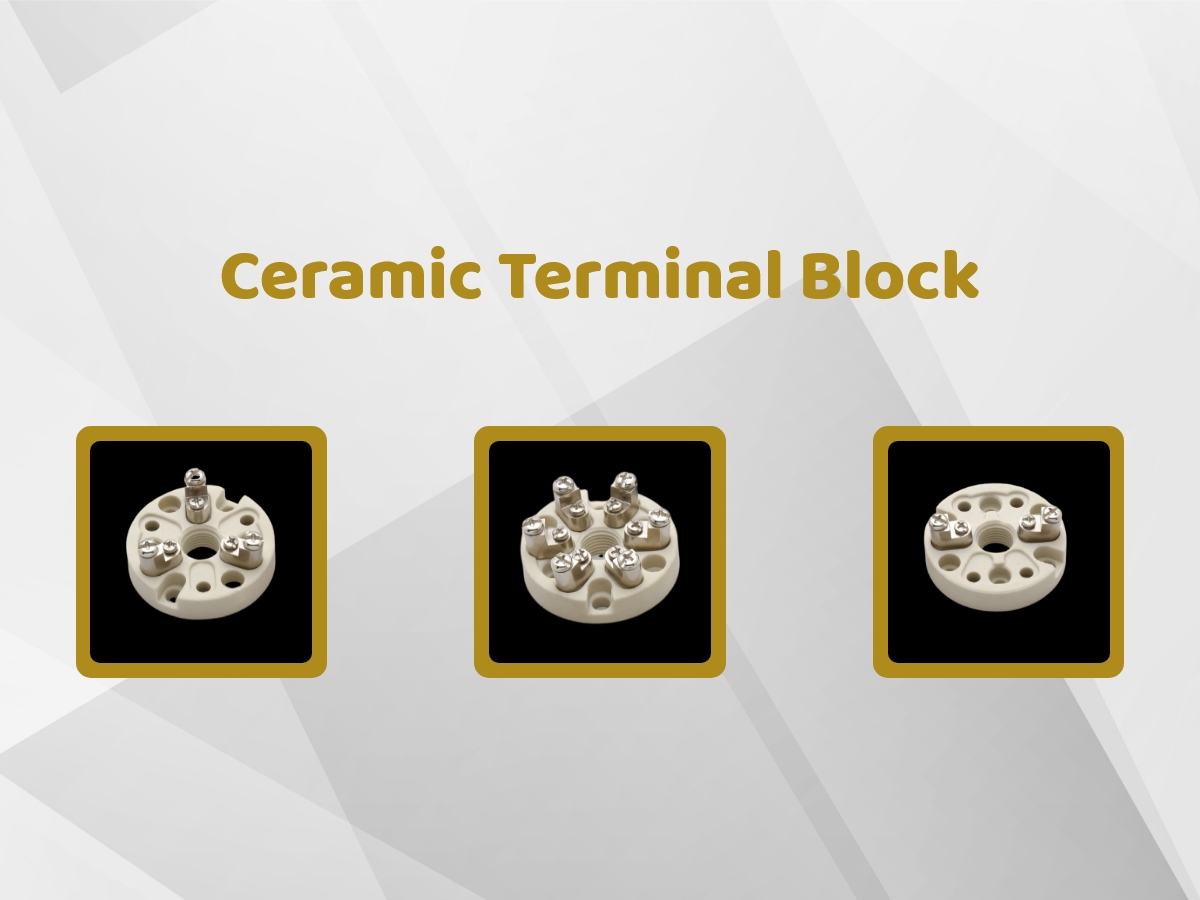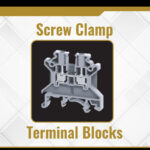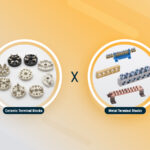A Complete Guide for Purchasing Ceramic Terminal Block

A ceramic terminal block enables secure connections and efficient power distribution when it comes to electrical wiring and connections. However, navigating the diverse array of options available in the market requires a comprehensive understanding of their specifications, features, and applications.
Whether for panel wiring, power distribution, industrial machinery, building wiring, field wiring, telecommunications, renewable energy systems, automotive systems, or consumer electronics, selecting the right ceramic terminal block is crucial for ensuring reliability, safety, and optimal performance in myriad electrical installations.
This guide aims to provide clarity by delineating key considerations and offering practical insights for purchasing ceramic terminal blocks tailored to specific needs and requirements.
YOU MAY ALSO LIKE: Purchase Wholesale Terminal Blocks
Ceramic Terminal Blocks:
Ceramic terminal blocks are electrical connectors that are made from ceramic materials known for their high-temperature resistance, electrical insulation properties, and durability. They are used to secure and terminate electrical wires in electrical devices for industry and domestic applications. In industry, they are used in high-temperature applications like furnaces, heaters, process equipment and machinery.
Ceramic terminal blocks come in various shapes, sizes, and configurations to accommodate different wiring needs and environments. Ceramic terminal blocks type SL allow the use of all cable termination ends, good visualization of the insertion of conductors (as ring and fork terminals) and long saddle tab to avoid conductor shearing.
When it comes to purchasing ceramic terminal blocks for specific applications, there are several key factors that should be considered to ensure the right one.
Here are the essential factors to keep in mind:
- Voltage and Current Ratings: Determine the voltage and current requirements of your application. Ceramic terminal blocks come with specific voltage and current ratings, and exceeding these limits can lead to electrical hazards or component failure. Ensure that the terminal blocks you choose can handle the expected voltage and current levels safely.
- Temperature Rating: Consider the operating temperature range of the environment where the terminal blocks will be installed. Ceramic terminal blocks typically have high temperature resistance compared to plastic counterparts, but it’s essential to verify that they can withstand the temperatures present in your application without degradation.
- Wire Size Compatibility: Check and ensure the wire size compatibility. Ensure that the selected ceramic terminal block can accommodate the diameter of the wires to use without causing stress or damage to the wires.
- Mounting Options: Evaluate the mounting options available for the ceramic terminal blocks. Depending on the application, terminal blocks can be mounted on DIN rails, panels, or directly onto a PCB (Printed Circuit Board). Select ceramic terminal blocks with mounting features that are compatible with your installation setup.
- Number of Poles: Based on requirement, determine the number of poles. Ceramic terminal blocks are available in various configurations, including single, double, or multiple poles. Select ceramic terminal blocks with the appropriate number of poles to accommodate the required connections.
- Cost and Availability: Compare prices from different suppliers and manufacturers. Also, consider factors such as quality and turnaround time. Choose a reliable ceramic terminal block manufacturer or supplier who can provide consistent quality and timely delivery of terminal blocks.
YOU MAY ALSO LIKE: How to choose a custom terminal block manufacturer?
Benefits of Ceramic Terminal Blocks:
- Temperature Resistance: They are designed to withstand high temperatures, typically ranging from several hundred degrees Celsius, contingent upon the specific ceramic material employed.
- Electrical Insulation: Ceramic materials exhibit good electrical insulation properties, rendering them ideal for high-voltage applications. High-temperature ceramic terminal blocks are the most suitable to provide reliable electrical insulation to prevent short-circuiting and other electrical failures.
- Corrosion Resistance: Ceramic materials are highly corrosion resistant. This characteristic makes them suitable for use in harsh environments.
- Thermal Conductivity: They have specific thermal conductivity properties for efficient heat transfer. It has been shown that efficient heat transfer can increase energy efficiency by up to 20% in high-temperature applications.
- Mounting Options: They offer various mounting options, including screw connections, bolted connections, or clamps, catering to diverse installation requirements.
- Customization: They can be tailored to fulfill specific application needs, encompassing diverse pin configurations, sizes, and shapes, thus ensuring seamless integration with the electrical system in which they are deployed.
YOU MAY ALSO LIKE: Select Reliable Terminal Block Supplier
Apart from the above, numerous factors and advantages of ceramic terminal blocks contribute to the decision-making process when selecting and purchasing the most suitable ones. Selecting the right ceramic terminal block is essential for every application either industrial or commercial. Invest in high-quality ceramic terminal blocks from reputable manufacturers to ensure optimal performance.
Teron Metal Components is an ISO 9001:2015 certified leading manufacturer and exporter of ceramic terminal blocks. Besides offering custom and contract manufacturing for special industrial applications, we also offer OEM manufacturing services. We are well known in the global marketplace for our quality products and cost-effective services. To know more about our services and products, you can contact us at sales@teronmetalcomponents.com or request a quick quote.



